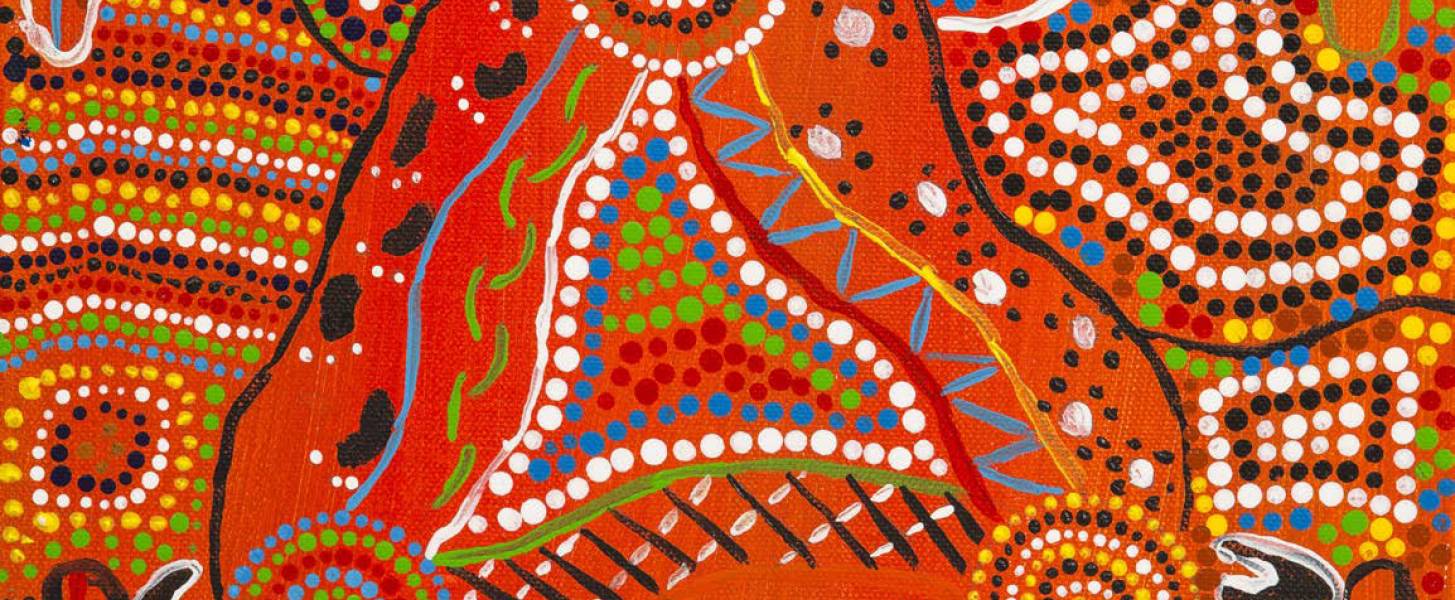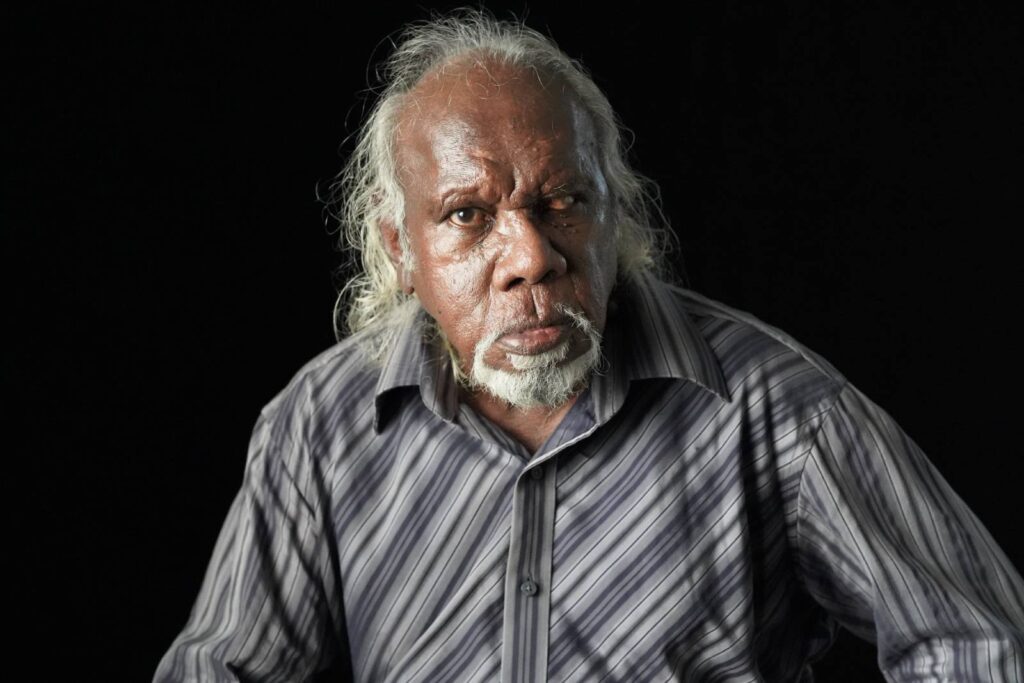
Edward Summers
Long-term Housing Resident
Edward Summers
Long-term Housing Resident
After growing up on Palm Island, Edward Summers moved to Townsville in the 70s, where he attended Town High. After graduating he moved to Tully — cutting bananas and melons. By the time he returned to Townsville, his mother was getting older and he didn’t want to intrude on her by moving in.
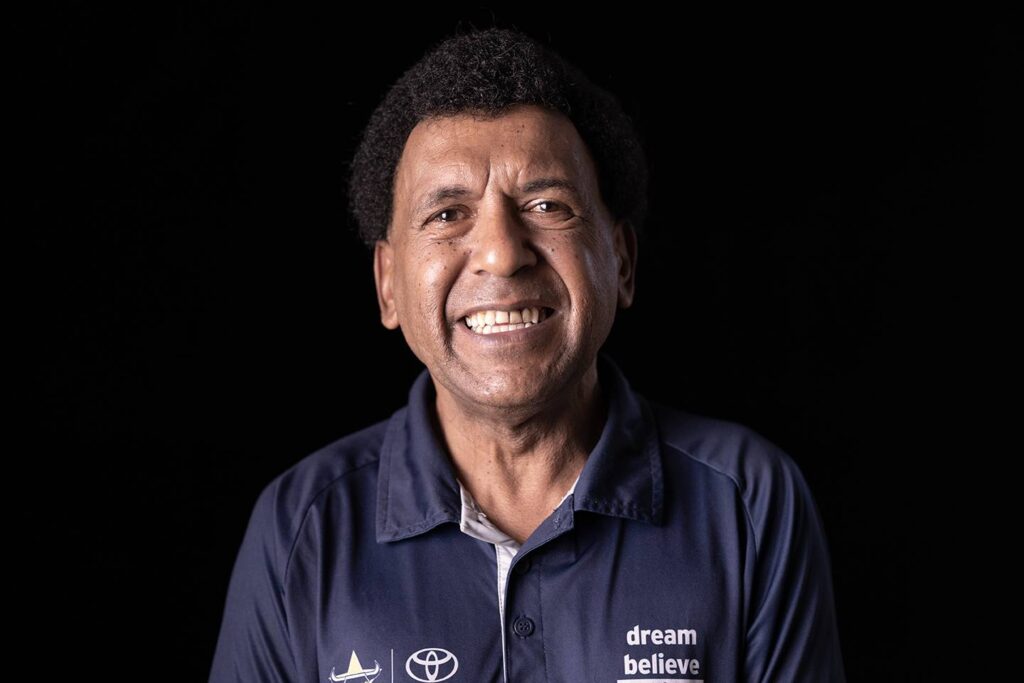
Carl Benn
Long-term Housing Resident
Carl Benn
Long-term Housing Resident
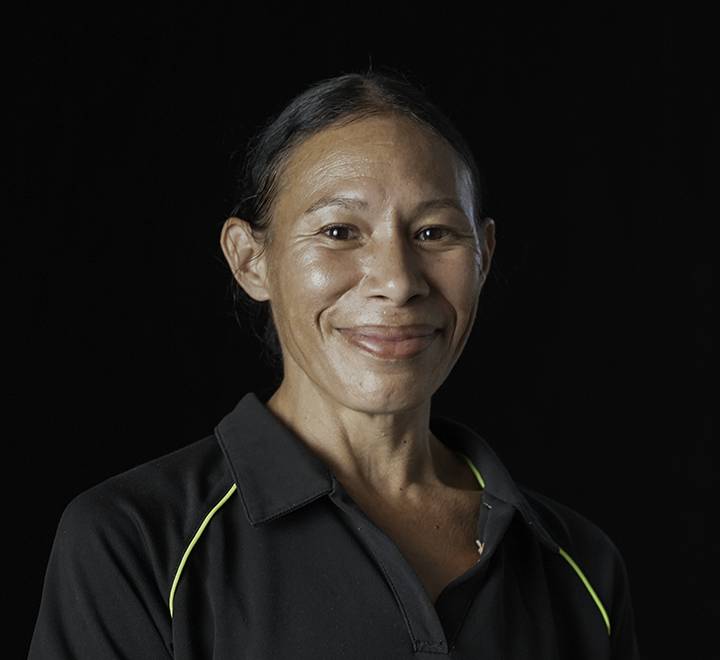
Naomi Cross
Long-term Housing Resident
Naomi Cross
Long-term Housing Resident
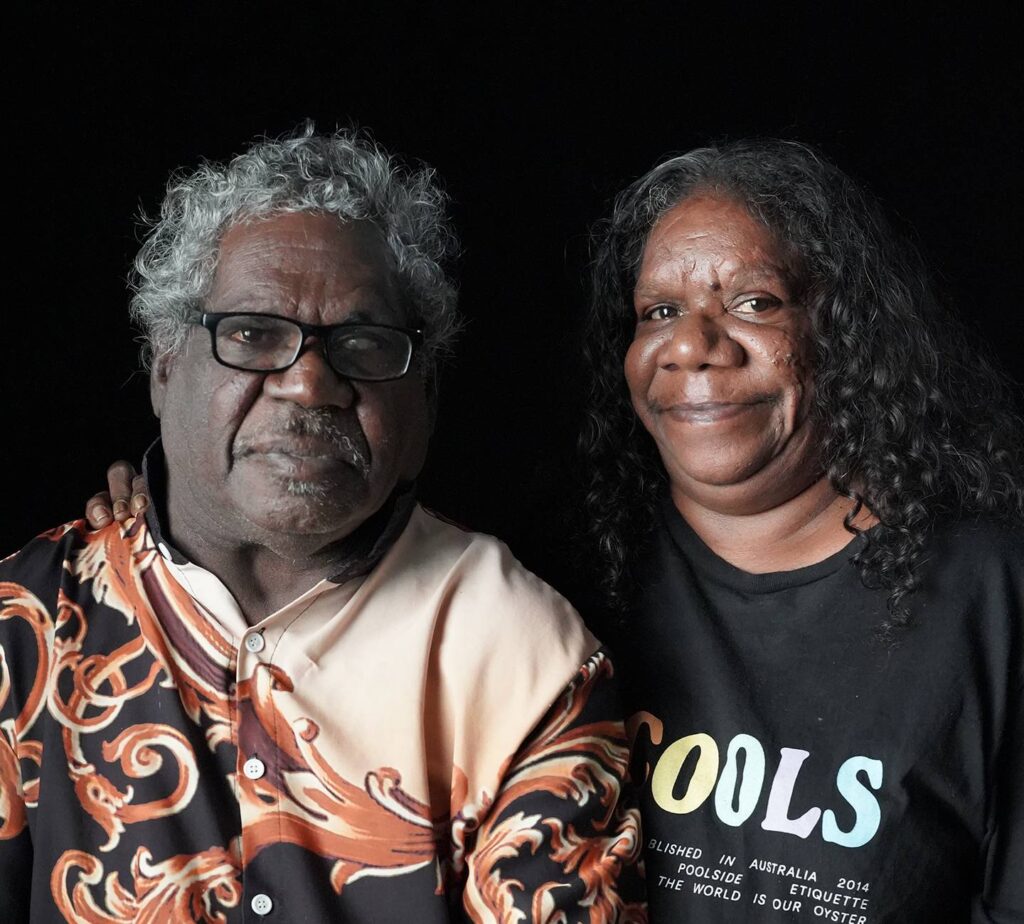
Carl Daylight
Karingal Patient Transition Accommodation Client
Carl Daylight
Karingal Patient Transition Accommodation Client
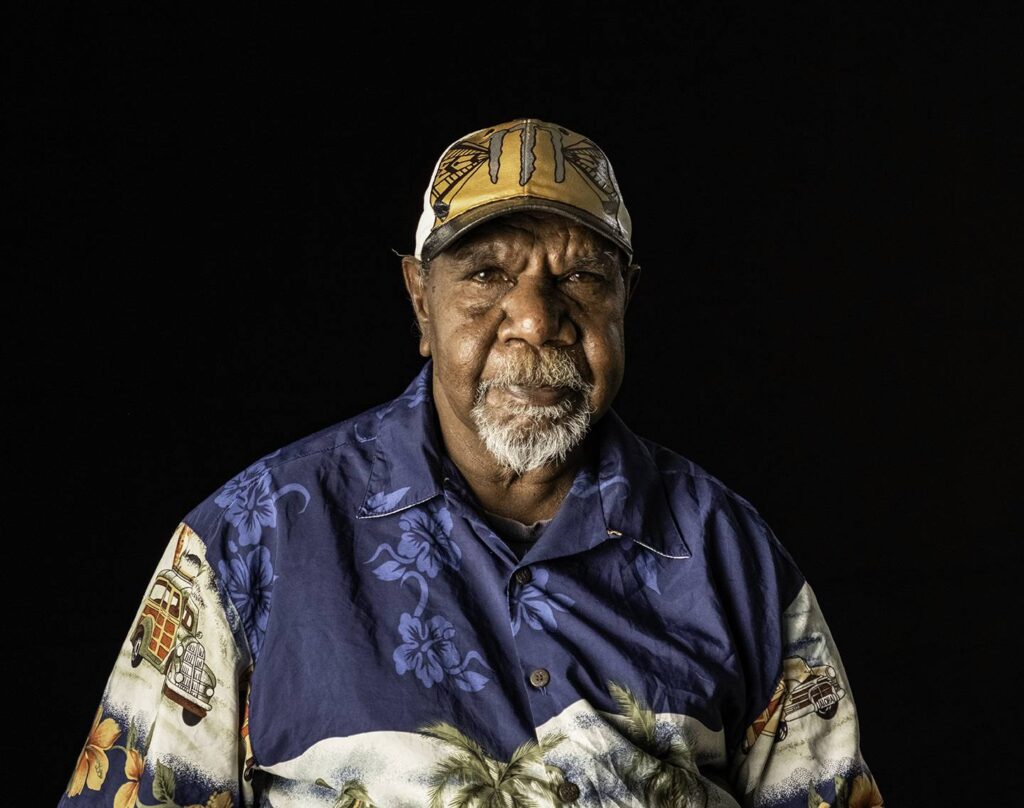
Nathanial Walsh
Dale Parker Place Resident
Nathanial Walsh
Dale Parker Place Resident
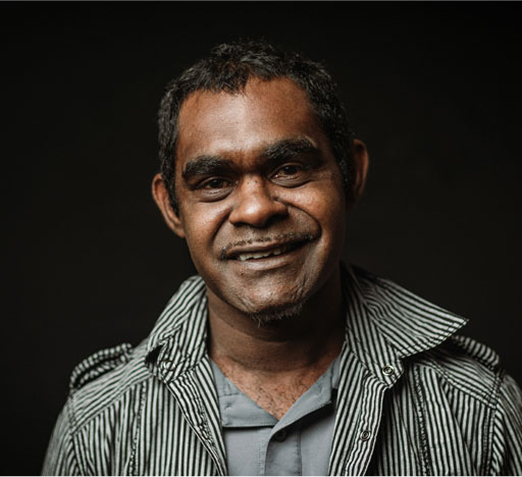
Charlie Gibson
Dale Parker Place Tenant
Charlie Gibson
Dale Parker Place Tenant
Coming to reside at Dale Parker Place two years ago was a turning point for Charlie Gibson.
While completing a course in Ingham, travelling back and forth, and staying in the park, Charlie heard about Dale Parker Place through family members.
“Coming to Dale Parker Place gave me a heads up,” says Charlie. “It was a big change for me. I’ve always wanted my own little ranch, my own space. Now I’ve got it, I’ve settled down.”
Recently, Charlie has achieved his coxswain certification. “My next step is getting my own little business in fishing tourism, maybe here or on Palm. I want to get those young fellas on track, give them something to do to keep them busy, employ them and mentor them.”
Charlie’s other skills are in engineering, fabrication and welding, which he would like to teach. “There are so many aluminium boats over there [in Palm]. I’d like to teach the kids how to weld, keep their hands busy, focused.”
Ultimately though, Charlie says he would love to be a Ranger and protect the fishing green zones around Palm Island.
“Yumba-Meta really put me in my place. If it wasn’t for them, I’d be a parkie. I wouldn’t have got this far, I wouldn’t be on my way to starting this business.”
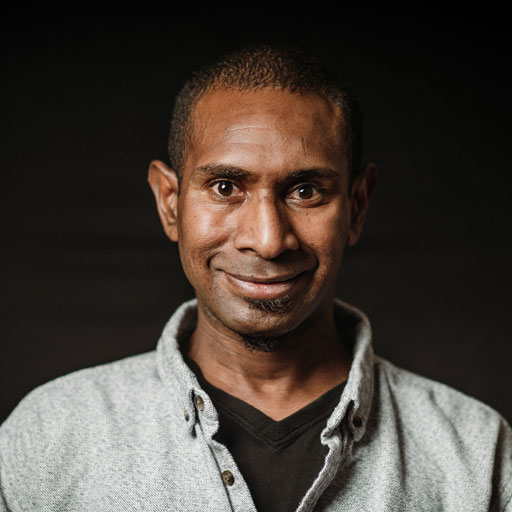
Jerry Reuben
Dale Parker Place Tenant
Jerry Reuben
Dale Parker Place Tenant
In early February 2019, Townsville experienced an extreme weather event that dumped sustained and heavy monsoonal rain on the region and flooded many of the city’s riverside suburbs. Some suburbs were inaccessible for days, and many residents had to be evacuated or rescued from their homes.
This deluge left particular suburbs inundated, and even inaccessible for days. More than 3300 homes were damaged, and close to 1500 rendered uninhabitable, including Jerry Reuben’s Hermit Park unit that he shares with his partner of 18 years, Katie.
“Once the water started to rise, we prepared as best we could, picked up anything we could,” shares Jerry. “We saved most of our belongings, clothing and stuff, but lost our furniture and white goods.”
Jerry and Katie were placed into a make-shift shelter at Ignatius Park College, where they stayed for one week. They then moved to another shelter at Heatley Secondary College, before Red Cross relocated the couple to a motel. After two weeks, Red Cross connected Jerry and Katie with Yumba-Meta. In late March 2019, Jerry and Katie moved into Dale Parker Place, where they remain tenants today.
“It’s good at Dale Parker Place,” says Jerry. “It’s a self-contained studio apartment, with our own bathroom, washing machine, oven, stove, mattress, everything we need. It’s a beautiful place too.
“We had employment before the floods, but then work slowed down,” recalls Jerry. “Katie picked up work again, she’s at Coles now and has been there a while. As for myself, I was at Copper refinery, then when coronavirus came they let nine people go. Because my employer could confirm I had stable accommodation here at Dale Parker Place, I got new work at a recycling group out at Bohle.”
While the commute from Rosslea to Bohle would be difficult without a car (Jerry and Katie’s car seized up after the floods), the Dale Parker Place staff offer tenants transport. “While we save to buy a new vehicle, I can still get to work and other appointments like medical, Centrelink and even to the shops, because I can’t push the trolley home!”
The staff also organise regular activities, such as arts and crafts, fishing and barbecues and day trips around North Queensland. “They take us everywhere, everyone gets involved. We all come together, like a family,” says Jerry. “It’s good to be active.”
For Jerry and Katie, Dale Parker Place has helped them get back on their feet. “After our place was washed out, we could have been couch surfing or homeless, but they pulled us in and helped us get set up. We are still replacing things we lost in the floods, like computers, but we’re in a good place right now.”
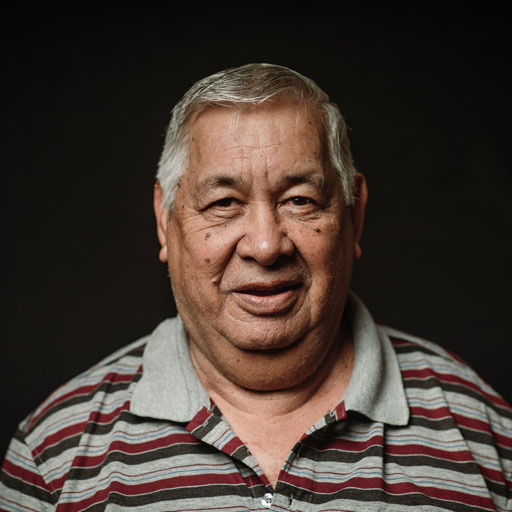
Robert Leon
Ernest & Maud Hoolihan Elders Village Tenant
Robert Leon
Ernest & Maud Hoolihan Elders Village Tenant
After a long career working in the mining sector, both underground and as a boilermaker, in Mount Isa and Townsville, Robert Leon now lives a much slower-paced lifestyle in his retirement. Today, his days are filled with visits to friends and neighbours, fishing trips and watching the football.
‘Home’ for Robert is Yumba-Meta’s Ernest & Maud Hoolihan Elders Village, where he has lived for the past eight years since the village first opened in 2012. In fact, Robert was the third tenant to move into the 16-unit complex, and today he is the village’s longest residing tenant.
What’s kept Robert content in his unit for so long is the convenience. “The shops and the doctor are within walking distance, and I walk to the shops every day,” tells Robert.
“The [Yumba-Meta housing] staff are good to deal with, and prompt in fixing things. All the maintenance is done for you. As soon as I say there’s something wrong, they are onto it. My hot water broke down just a couple of weeks ago, and they sent an electrician out the same day.”
In 2018, the Elders Village was one of the first Yumba-Meta-owned housing developments to receive solar panels, which Robert says has drastically reduced his electricity bills. “My bills used to be $150 per quarter,” shares Robert, who estimates his energy bills now total just $50-60 per year.
“Now I’m always in credit; I’ve never been in the red, I’m always in the black. I bought a small air conditioner, and had it running in summer, all the time, and my highest bill was about $41. It’s cheap as. We’ve all got solar panels on out here now, which helps everyone out because we don’t have to worry about big power bills.”
It’s the peace and quiet that Robert says he enjoys most about his home. “It’s very quiet out here. It feels safe and private, and we’ve had not one break in,” says Robert. “I get along with everyone out here, they’re all good people,” he adds of his fellow villagers.
“We have had a few barbeques with the neighbours. We look out for each other. Loneliness is a killer; it’s good to get together.”
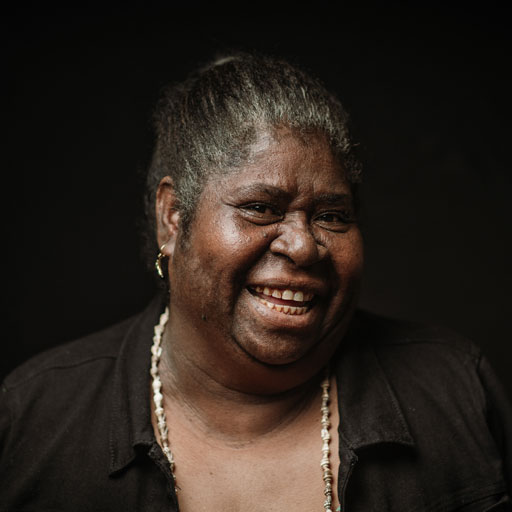
Sharon Henderson
Long-Term Housing Resident
Sharon Henderson
Long-Term Housing Resident
In 2011, during Cyclone Yasi, Sharon Henderson’s home burned down. The devastating fire left Sharon and her seven children homeless and in desperate need of rental accommodation.
“It was not a good time for me,” recalls Sharon. “Their father was not there, we had lost our home, and lost everything. I took my children with me down to Queensland Housing and begged for a home but they didn’t have anything. I sat there from 8.30am when it opened and stayed until the afternoon. Eventually, I was referred on and learned about Yumba-Meta.”
Sharon and her family were given emergency accommodation. In 2013, Sharon moved her family to their current home in Kirwan, close to her children’s school. “I fell in love with the house immediately. It had a brand-new electric stove, a patio at the back, a bus stop at the front and it’s eight doors down to Woolworths.”
While the single-level three-bedroom home seemed ‘small’ for a family of eight people, Sharon says it was perfect. “Our culture is to share, so the size wasn’t an issue at all. It has been a great home for us. Joshua has multiple disabilities and I, myself, have spinal issues and high blood pressure, so I prayed for a single-level home on the ground, with a patio and access to a bus stop. This home was everything I prayed for,” she says.
“Yumba-Meta has been so good to us. They treat me with respect, I feel like we are part of their community,” shares Sharon.
Now, in 2020, four of her children have left the nest, with the two eldest working in Brisbane and two others living locally. Only Sharon’s youngest three children remain living at home with her, Azaria aged 23, Margaret, 20, and 13-year-old Joshua.
“Joshua and I want to be here for the long-term. With Joshy’s disabilities, he struggles with change,” shares Sharon. “This is our home. I’m so grateful.”
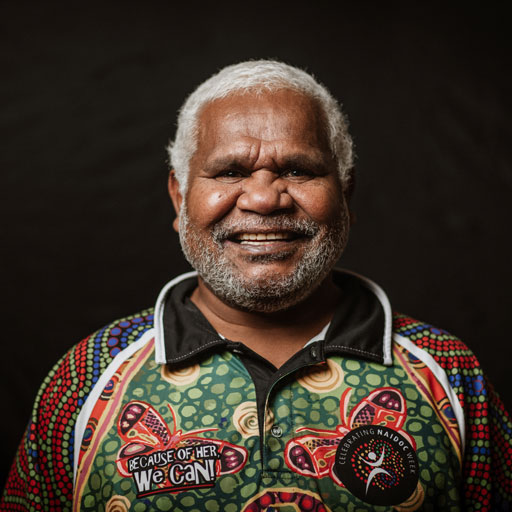
Fletcher Christian Daisy
Long-Term Housing Resident
Fletcher Christian Daisy
Long-Term Housing Resident
Fletcher Christian Daisy ‘The Second’ is actually a first-rate example of the type of outcomes YML achieves in partnership with their clients.
When Fletcher walks into a room he brings a brand of humour that’s all his own.
Grinning broadly, he proclaims (rather than announces) his name;
“I am Fletcher Christian Daisy, The Second! Named after Fletcher Christian from Mutiny on the Bounty.”
Fletcher has lived in many places over the years and was employed in a variety of stable positions including Shalom Christian College, the Townsville City Council Dump and Recycling program, Bunnings and Never Fail Water.
“My marriage broke up, and I was in a bad place. I went as far as you can go. I was homeless for nearly four months, living in the park. I slept through the pouring rain with thunder and lightning. I think I was one of the worst, under the Victoria Street Bridge, drinking goon.”
Despite linking with a number of community-based organisations, none seemed able to help him transition back to stability.
In November of 2010, Fletcher received a referral to Dale Parker Place where he was a client for over nine years.
Asked about how YML had improved his future, Fletcher bowed his head, humbled.
Tears fell freely as he explained; “Dale Parker gave me back my life. My independence, my security.”
“It’s not just a place to stay, but a program. I learnt about budgeting and paying bills. And we got to be social again. We’d go out fishing on a Friday, and on a Tuesday? Well, we’d visit the 7th Day Adventists. We’d start with an opening prayer and then share in vegetarian food! I never knew you could make Shepherd’s Pie out of lentils and potato..!”
“Through Dale Parker, you meet good people who go out of their way to help others.”
These days Fletcher manages his own tenancy; “I’ve been living in my own unit for two years now. I’ve made good neighbours and good friends. I’m right where I want to be.”
Asked if he still receives assistance from a case manager, Fletcher flashes his trademark grin, “I’m the case manager now. I case manage myself!”
“Bottom line is this; Dale Parker is a really good institution for homeless people. They lead by being an example. Being an example is the way through it.”
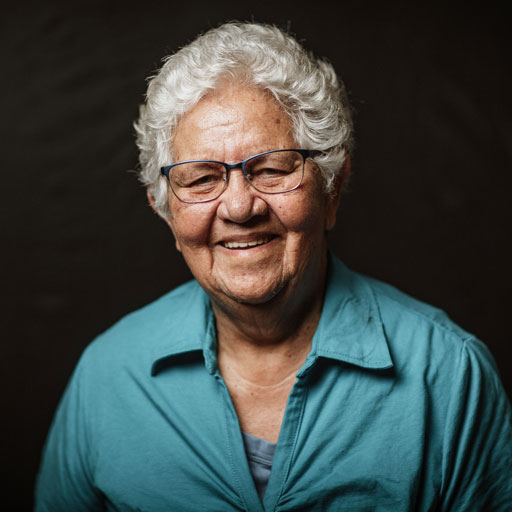
Mrs Margaret Hertz
Ernest & Maud Hoolihan Elders Village Resident
Mrs Margaret Hertz
Ernest & Maud Hoolihan Elders Village Resident
When Mrs. Margaret Gertz (nee Hoolihan) moved from her family home to be closer to medical facilities for her late husband, she admits she found the transition challenging.
“My husband had been diagnosed with stomach cancer, and it became necessary for us to move closer to specialist care. At first, it was hard to leave our home of 50 plus years in Malanda, where we’d raised our 6 children to adulthood.”
However, on sighting the Innes Estate village, designed specifically by Yumba-Meta for Aboriginal and Torres Strait Islander Elders, Margaret’s decision was made.
“We came down to see the village. As soon as I walked through the home, I knew, ‘Yes! This is for us!’”
Mrs. Gertz’s first impression of the estate is perhaps unsurprising. Surrounded by natural forest, the village is a prime example of how Aboriginal and Torres Strait Islander housing facilities benefit from community-based planning at a grass-roots level.
While Margaret’s husband has since sadly passed away, she herself has gone on to remain at the village as a tenant for some 6.5 years.
“We’re completely independent,but we also enjoy the company of close neighbours. We all keep an eye out for each other. My cousin Glenda is there too, so we have plenty of social interaction.”
Yumba-Meta provides a weekly bus service to the estate, ensuring all tenants are able to access the community and attend to their weekly errands.
“The bus service is a big help; it comes in on Wednesdays and Thursdays and is a routine we look forward to.”
The estate’s relaxed and peaceful setting also makes it accessible for visitors. Being a mother of six adult children, Margaret has a large number of grandchildren, so this element of the village is particularly important.
“I see my family regularly! They drop in for a cuppa, or we share a meal together. I had them all over for dinner last night on the patio actually!” Margaret finishes with a laugh, “but instead of me cooking up a storm as I used to in my younger years, now they bring the dinner. I don’t mind that change one bit!”
Margaret has a large number of grandchildren, so this element of the village is particularly important.
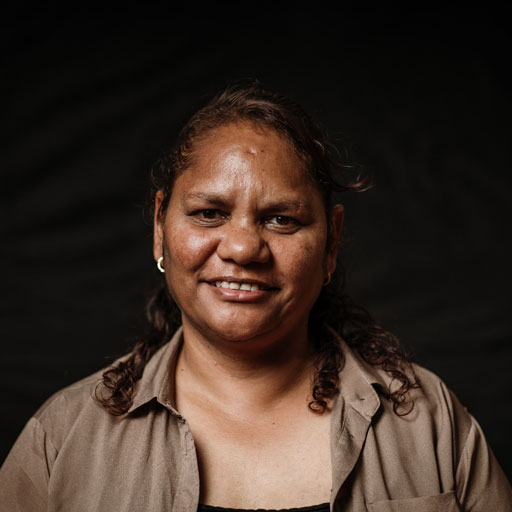
Natusha Kum-Sing
Long-Term Housing Resident
Natusha Kum-Sing
Long-Term Housing Resident
At the end of 2013, Natusha Kum-Sing made the difficult decision to pack up her three children and leave the support network of her extended family in Mount Isa to move to Townsville.
“I have an adult daughter with Cerebral Palsy who needs 24/7 support,” said Natusha of her decision to move.
“Living in Mount Isa, it was just me doing it all myself with no extra support, so there was a whole upheaval with moving and leaving all my family.”
Natusha was able to find a disability home through Yumba-Meta Limited with minimal fuss, and she and her family have been in the same property ever since.
“It’s a quiet area, I like where we are at the moment,” Natusha said.
“My daughter’s doing really, really well since getting the extra help – through the NDIS, support workers step in and do all of the stuff that I’d usually do. It gives me a break and she’s always on the go, doing lots of activities.
“The goals that she’s achieving now are great. It was worth making the move, definitely.”
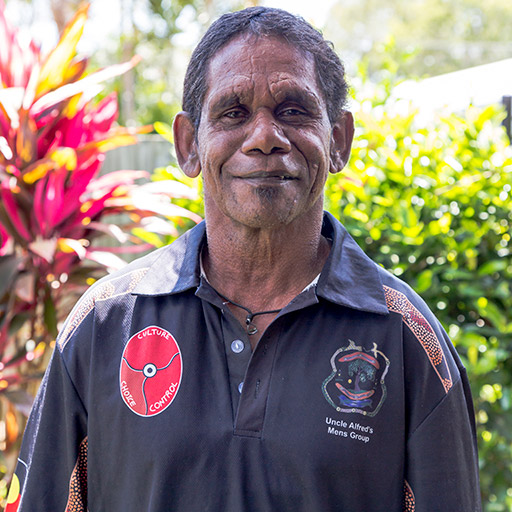
Clinton Ketchup
Private Resident
Clinton Ketchup
Private Resident
Clinton Ketchup will never forget the day he got out of jail — 1 September 2015. After five years inside, he was determined to change his life.
“When I was young I thought it was fun going in and out of jail but as I got older I started thinking about finding another way,” Mr Ketchup said.
“After I got out of jail I went into a rehabilitation program on Palm Island and found a men’s group (Uncle Alfred’s) where I could talk to other brothers like me.”
On weekends, Clinton would also visit YML’s Dale Parker Place.
“I used to visit the old Dale Parker Place on Bowen Road because I had a couple of brothers in there from Palm,” Mr Ketchup said. “I tried to encourage them to come to Uncle Alfred’s with me (Uncle Alfred did a bus pick-up from Dale Parker every Tuesday night).”
As Clinton’s graduation date from his rehab program drew close, he knew he needed to find a new place to stay. So when he saw Charles, a case manager from Dale Parker Place, at Uncle Alfred’s one night he went up and introduced himself.
“I said ‘Hey brother you, don’t you work at Dale Parker? I want to know if I can get in there because I graduate soon and I’ve got nowhere to stay.’ Charles was happy to try and help so I gave him the number for the rehab,” Mr Ketchup said.
“Two days later. Bang. I got the call for Dale Parker. I had a house!”
Clinton was at Dale Parker Place for 11 months in a one-bedroom, ground floor unit. Charles was his case worker, helping him work towards his goals and taking him to his parole check-ins.
“Being at Dale Parker helped me get back on my feet after rehab. It gave me the breathing space I needed.”
When Clinton was ready for more independence, YML helped him find a new place with its community housing arm.
“Now I have a bike and ride to PCYC and work out on the gym equipment,” Mr Ketchup said.
“I also like going to Joyful Noise at CitiLife Church out at Hervey Range Road past Kalynda Chase. I’ll get on the microphone and have a sing!”
Clinton also enjoys riding around Condon, Wulguru, Kirwan and The Strand and now, when people see him, they remark on how well he looks.
“They see a change in me because when I was in the park I could hardly walk,” Mr Ketchup said. “I just needed someone to give me a bit of help.”
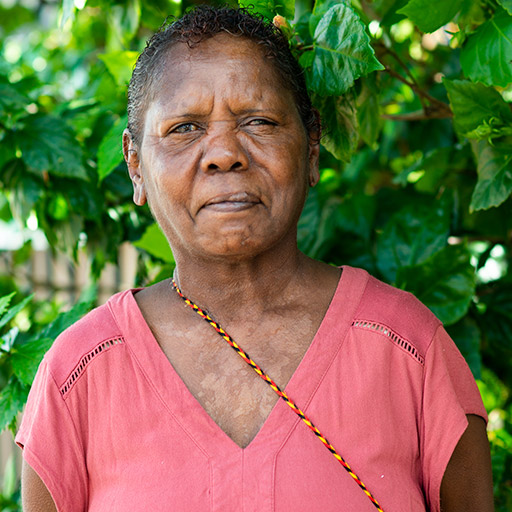
Lisa Kidner
Dale Parker Place Resident
Lisa Kidner
Dale Parker Place Resident
Not long ago, Lisa Kidner was sharing a single room lodging with her brother in Townsville’s CBD.
Today, she’s enjoying life doing the things she likes most… fishing, cooking and spending time with her family in her own home.
Born on Palm Island, Ms Kidner moved to the mainland when she was 25 years old. Ten years later, she evokes memories about her first few years in Townsville living rough in the city’s homeless hotspots.
“I spent a lot of time camping in Hanran Park and down the Strand, drinking and smoking too much, getting into fights in Dean Park and drinking under Victoria Bridge,” Ms Kinder recalled.
“I’ve been good for a couple of years now but up until September 2017 I was living with my brother in Sturt Lodge in the city and sharing a room. Red Cross put me in touch with Yumba-Meta and now I’ve got a unit on Bowen Road in Rosslea.”
Ms Kidner’s immediate family also live in Townsville but she’s very much enjoying her space and living her own life in her new home; spending time with her two sons Jack and Darryl who are also in Yumba-Meta housing as well as her nephews who live nearby and being able to help look after her brother who has epilepsy.
She said life is starting to change for her.
“Red Cross and the people at Yumba-Meta helped get me off the street and I really love it in my new home,” she said. “They take us fishing every Friday and we also do arts and crafts, beadings and paintings. I have my own space and I can relax back and do my own things.”
Making the transition to living in the Yumba-Meta community at Rosslea was easy for Ms Kidner, who enjoys the pace of life offered by the surroundings and the great service provided by the team. Apart from the occasional ruckus in the complex she said it’s a great little community where she’s even made some new friends. “Being so close to the river is great ‘cause I like my fishing too,” Ms Kidner said.
“I usually catch a few Mangrove Jacks and cook them up for dinner. The services here are good. We all go in for meetings and they treat us very nice and take us where we want to go in the car to get groceries or go to Centrelink if we need to. And if we want to move in the future they’ll help us apply for housing.”
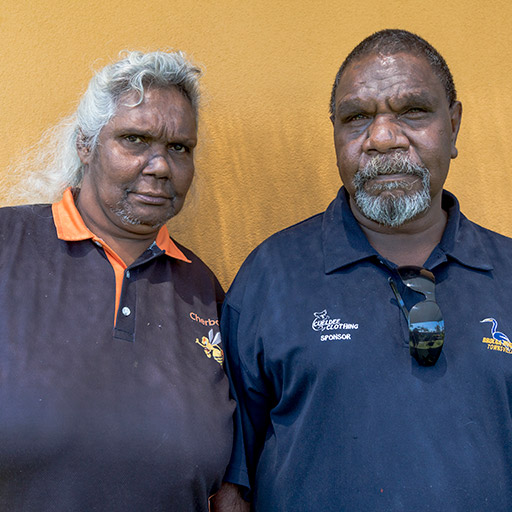
Elizabeth Barber & Nathaniel Walsh
Long-Term Housing Resident
Elizabeth Barber & Nathaniel Walsh
Long-Term Housing Resident
To look at them now you’d never guess partners Elizabeth Barber and Nathaniel Walsh once called Dean Park home. Back then; life was tough, with drinking and violence an everyday reality.
“We used to be the main two fighting,” Ms Barber said.
“We’d have Domestic Violence Orders out on each other and wake up with bumps and bruises not remembering how we got them.”
The pair used to live down on the riverbank near the mangroves, cooking with a portable stove and relying on stop-gap meals from the nearby drop-in centre and Yumba-Meta’s Reverend Charles Harris Diversionary Centre. It was there they heard about YML’s Breaking the Cycle program and went for it.
“I just got sick of getting up drunk and broke — not even having a shower. That wasn’t a life,” Mr Walsh said.
“There was a point where I had to say enough is enough — I’ve got to change.”
With the help of case workers who were there to listen to their needs, connect them with medical and counselling services and assist with transport to appointments, Elizabeth and Nathaniel were supported in their desire for change.
They had food in their belly, a bed to sleep on and a roof over their head while they waited for more permanent housing at Dale Parker Place when they finished their programs.
Meanwhile, the art therapy and beading workshops offered as part of the program, as well as fishing trips with their case managers and other clients, provided healthy diversions from drinking.
“My first artwork had kangaroos, porcupines and fresh water turtles on a big canvas,” Mr Walsh said.
“Everybody wanted that one but we won’t part with it because it was Lizzie’s 30th birthday present.”
For Elizabeth, beading proved therapeutic and a self-esteem booster as she was asked to make earring, necklace and bracelet sets for admirers of her work.
After completing their programs, Elizabeth and Nathaniel were both offered residences at Dale Parker Place. In 2012 they moved into their own apartment in Belgian Gardens through YML’s community housing service.
“We’re starting to get the things we never had when we were drinking.”
“We’ve got ourselves a big flat-screen TV and a laptop. A lot of things you dream of when you imagine having a home.”

Alice
Alice Flora House Client
Alice
Alice Flora House Client
Alice* is a 30-year-old Aboriginal mother of three who was referred to Flora House by DV Connect after she escaped from a domestic violence situation.
Unfortunately, she had been evicted from her own rental property due to the behaviour of her ex-partner.
Flora House staff assisted Alice to obtain a Centrelink crisis payment and arranged transport to attend her medical and legal appointments.
After assessing her safety needs and determining that she was at high risk of further domestic violence since her partner and his family lived in Townsville, Flora House successfully referred Alice to a shelter outside of the Townsville area. Alice and her children stayed at Flora House for 15 days.
*Names and identifying details have been changed to protect the privacy of individuals.

Sally
Flora House Client
Sally
Flora House Client
DV Connect referred 45-year-old Sally to Flora House after she escaped from a domestic violence situation. Sally had been a victim of domestic violence for nearly 20 years.
Flora House assisted Sally* with applying for Centrelink payments for herself and her child who was attending boarding school. Sally wished to remain in Townsville and was supported by Flora House staff in registering with the Department of Housing. On completion of her housing application she was able to apply for community housing.
Sally gratefully accepted the offer of the furniture and arranged for a family member to collect the items for her and transport them to her unit. Sally stayed at Flora House for a total of 22 days.
*Names and identifying details have been changed to protect the privacy of individuals.

Annie
Flora House Client
Annie
Flora House Client
A 60-year-old woman requested the assistance of police to find her and her adult son safe accommodation.
She stated that her husband had abused herself and her son for the last 25 years. The woman was referred and accepted into the Shelter, and the contact details for the Men’s Helpline provided for her son.
On arrival to the Shelter, the client was provided with clothes and food and a crisis payment application was submitted for review. The crisis application was approved and Centrelink deposited funds into her account to assist her with food and other needs.
Once at the Shelter, the client informed staff that the son had also been abusing her over a period of time. Staff was able to assist in submitting a DV Order application and the client attended court and received a no contact DV order for five years against her husband and son.
During the first two weeks of clients stay at Flora House, staff assisted the client in viewing and applying for multiple private rental properties. Unfortunately, the client was not successful in her applications. It also became apparent to both the client and staff during this time that she would need ongoing support to manage her daily activities.
Shelter staff contacted several retirement villages, and was successful in securing her a fully furnished unit with meals, and daily support provided.

Cathy
Flora House Client
Cathy
Flora House Client
A single mother, along with her two children, were involved in an incident where their lives were put at risk during an attack by her ex-partner.
The client and both her children were hospitalised for treatment for two nights following the incident. The attending Queensland Police Detectives began working with the client immediately to ensure their safety upon being released from hospital, and to gather evidence to enable an arrest and subsequent prosecution of the perpetrator to occur. DV Connect referred the client and children to the Shelter. The referral was accepted immediately, and the client and her children were transported to the Shelter.
The woman was assisted in applying for a Centrelink crisis payment, and emergency supplies of food and clothing provided for both her and the children.
After a week in which to give the family a chance to mentally and physically recover, staff approached the client and explained that it would be best to have some normality for the children and enroll them into the local school.
The client and children were extremely frightened at first, due to the perpetrator having not yet been apprehended by the police. Strategies were put in place and the children were able to safely attend school. The Shelter supplied the children with uniforms, backpacks and stationery.
Counselling was arranged through The Women’s Centre for the mother, and assistance provided in successfully submitting a Victims of Crime claim. Queensland Police assisted in supporting the client to fast track her housing application to enable her to return to her home.
The client has now returned to her family and support networks and is now in her new property and plans of gaining employment and remaining drug free. The perpetrator is serving a long sentence in a correctional facility.
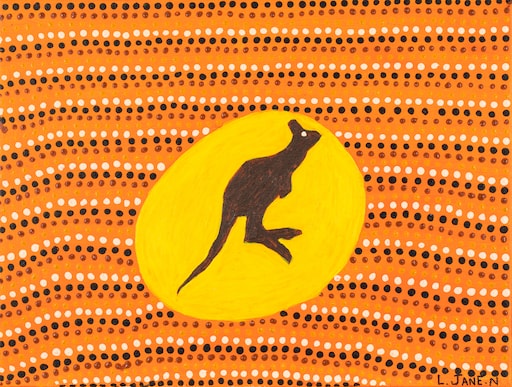
C.W.
Breaking The Cycle Client
C.W.
Breaking The Cycle Client
C.W. has been a regular client of YML since the organisation took over management of the Diversionary Centre since 2008.
In 2010 she entered the Breaking the Cycle program and engaged in the program for a short period of time before returning to her life in the parks.
This pattern of behaviour was repeated over the years until 2018 when she engaged more actively with the case managers.
Her health had deteriorated over the years forcing her to reconsider her lifestyle.
C.W., with the assistance of the case managers set herself three goals; to quit smoking and drinking, to obtain her birth certificate and to obtain her own place.
C.W. struggled to persevere with her goals and on number of occasions disappeared from the program. Each time she came back the case managers worked with her again, with the end result that all three goals have been met.
C.W. has now successfully transitioned into Dale Parker Place and is maintaining her tenancy.
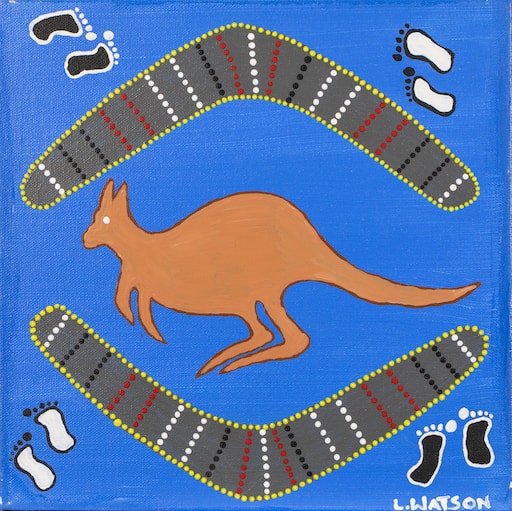
D.M.
Long-Term Housing Resident
D.M.
Long-Term Housing Resident
An Indigenous male aged in his 40’s was transferred from the Remote Community of Doomadgee for Renal Treatment (Dialysis) at The Townsville Hospital.
Prior to being housed in long-term housing, tenant experienced homelessness and was sleeping rough on the streets resulting in deteriorated health and well-being. Due to his instability he was not meeting his ongoing appointments with the hospital.
By end of May 2013 he was successful in obtaining long-term Housing with YML. During this time he experienced many challenges and ongoing issues around his health and tenancy. The housing team understood his needs and connected him with appropriate wrap around supports and YML staff worked tirelessly with him to ensure that he continues to sustain and maintain his tenancy.
Support provided to him has seen great improvement in his health, less issues with his tenancy matters and his ongoing Renal Treatment being successfully met. The clients current situation with his improved heath and sustaining tenancy is considered a great outcome for this particular client.
